It’s June 2020. My girlfriend – now fiancée – was supposed to have moved to the Czech Republic to live with me, but here came an unexpected obstacle. As a Brit living in Prague I was banned from entering the US, and Kate was banned from entering Europe.
Then the clouds part, Serbia opens up, and there’s a direct flight from New York to Belgrade. That’s just a nine-hour drive – plus a gnarly Hungary/Serbia border – from Prague. We make the arrangements and I meet Kate, bleary-eyed from an overnight flight, at Nikola Tesla Airport.
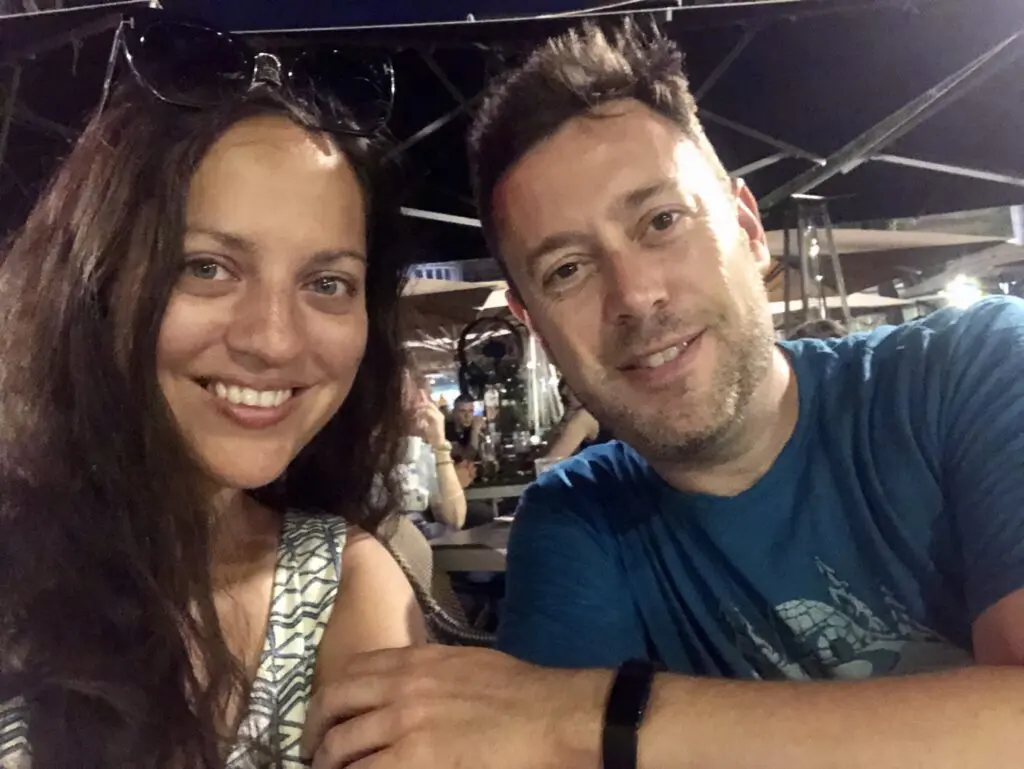
We don’t have much of a plan other than waiting till the Czechs open their borders to partners of citizens and residents like they just did for immediate relatives, but at least we’re together. (Spoiler alert: they allowed partners of citizens in late July, as part of the #loveisnottourism initiative. But #loveisnotforpermanentresidents, and we ended up waiting till late September). We guess we’ll spend some time exploring Serbia while continuing to work remotely, then maybe North Macedonia?
In the end, we were in Serbia for a little over two weeks. Croatia opened its borders and we didn’t need much convincing. With friends and colleagues there, and it being the middle of summer, this was a fantastic opportunity to get to better know a country we had both already spent a lot of time in.
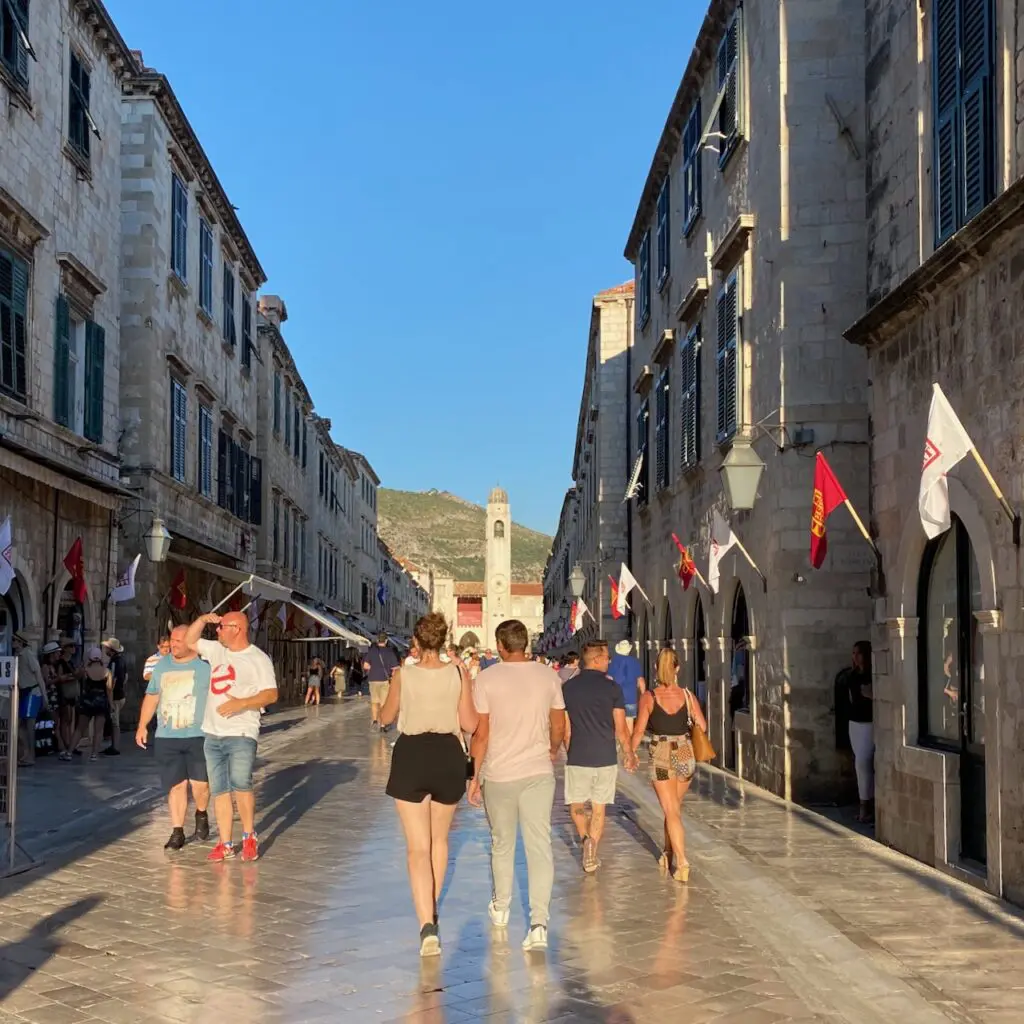
Apologies for the preamble, but this was all to set the scene as to the inspiration for the Croatia in Three Years itineraries. Based on my experiences combined with her own deep knowledge, our expert Croatian trip planner Lidija put these together.
For a lot of travelers from the US, Croatia is approached in one of two ways: a packed south-to-north itinerary, with one or two islands, or sticking to the headline acts of Dubrovnik, Split, and Hvar. The danger with either approach is saying “I’ve ticked Croatia off, no need to go back”. The purpose of these itineraries is to showcase some of the many things that are worth going back for, and how you can take several bites at this Mediterranean peach, each with some familiar flavors and a little different every time.
Jump to a section of this article
Croatia in 3 Years, Part 1: Southern Dalmatia (8 Days)
Dubrovnik, The Pearl of The Adriatic
There’s really nowhere else to get a better first impression of Croatia than Dubrovnik. The anticipation that has built up in the weeks leading up to your trip culminates at that moment when your driver brings you around the corner and you get your first in-person glimpse of the orange roofs of the walled city jutting out into the azure sea. There’s nothing quite like it. And on this itinerary, you’ll spend three days marveling at it from all angles.
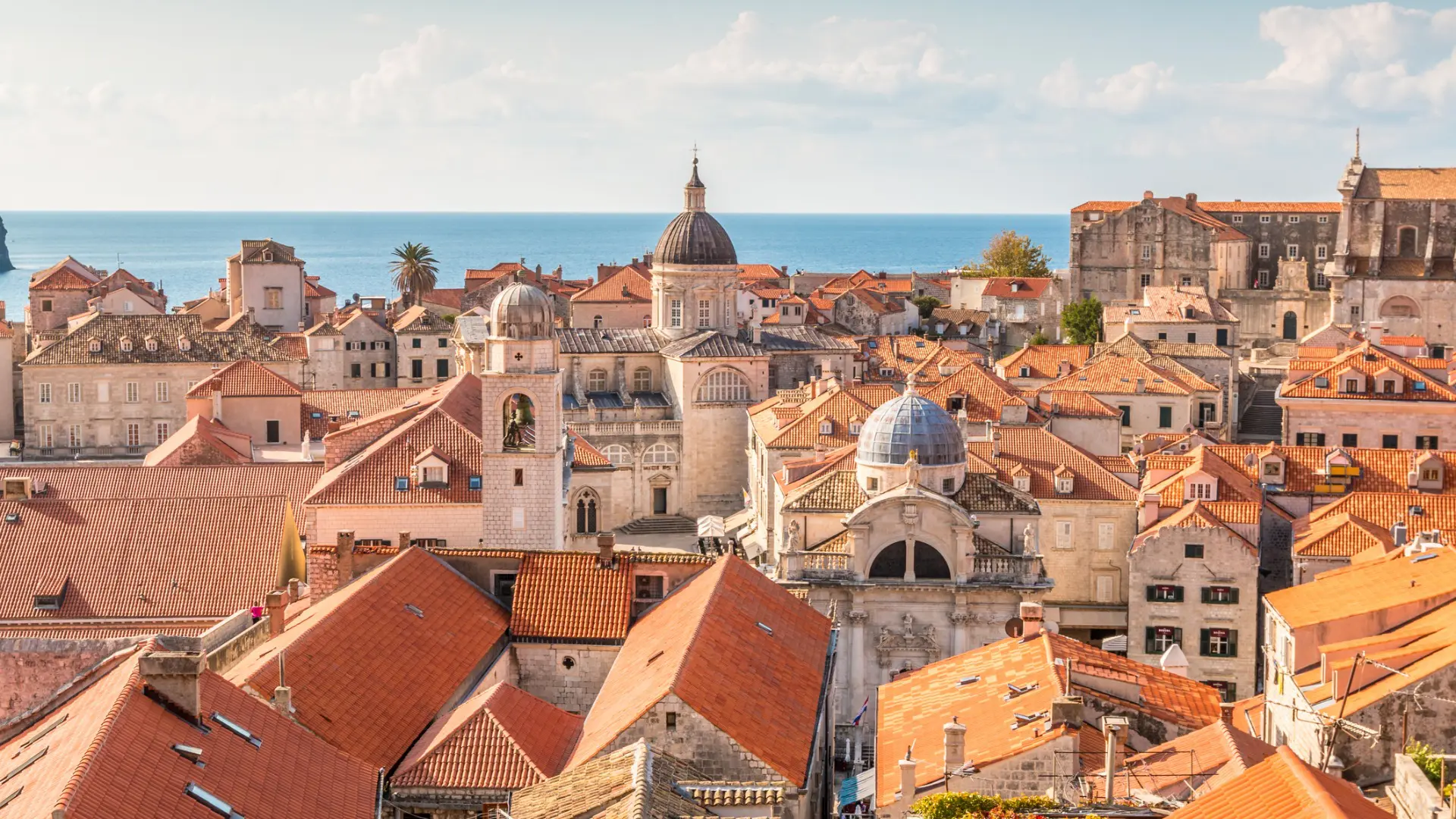
Korcula, Marco Polo’s Hometown
No first visit to Croatia would be complete without some island time, and Korcula is a fine first island to visit. Marco Polo’s hometown, according to the locals, Korcula is like a mini Dubrovnik. Getting beyond the Old Town, you can enjoy some fantastic white wines from indigenous grape varieties, wonderful beaches, and untouched nature.
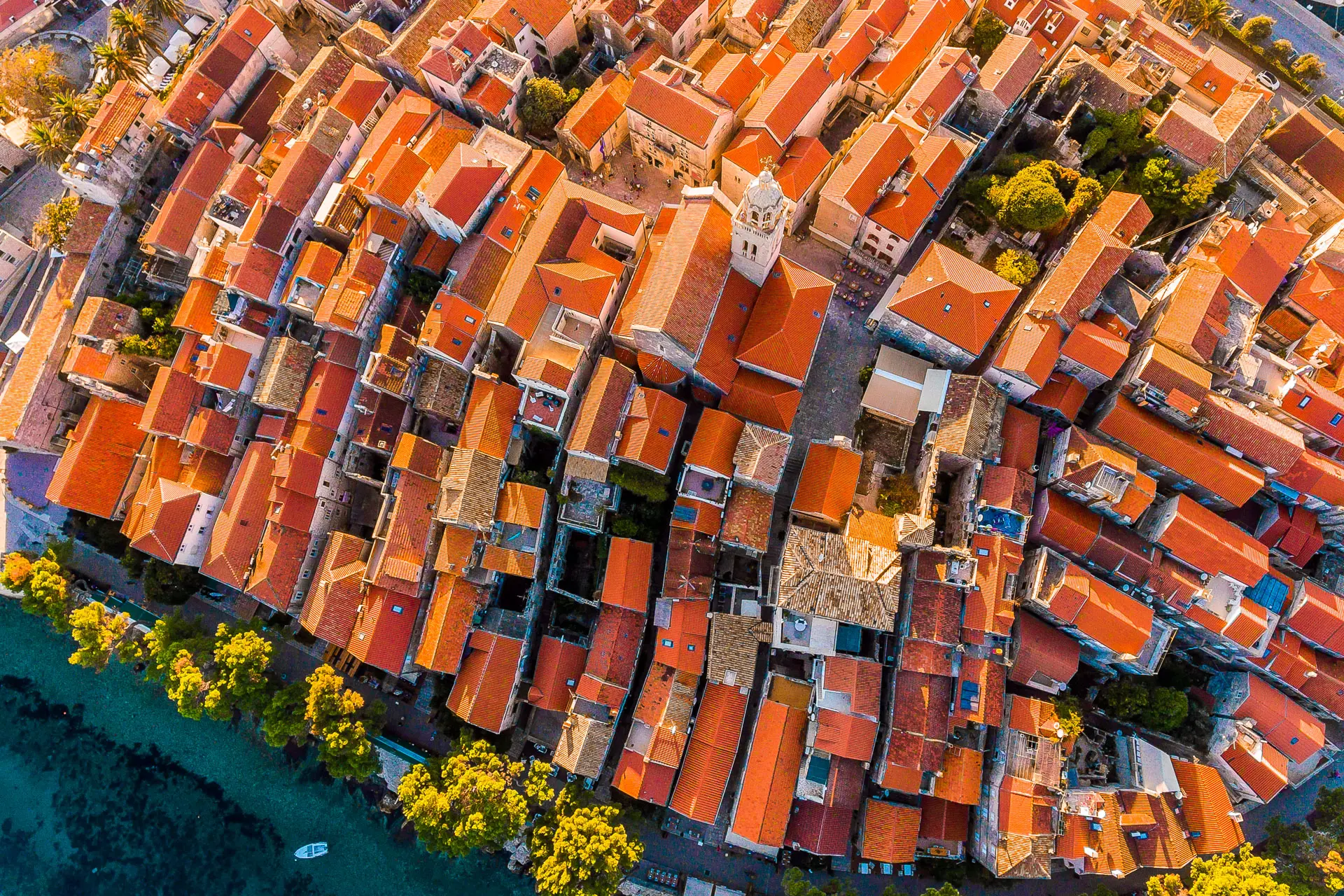
Cavtat, Dubrovnik’s Quiet Neighbor
To make sure you’re at the airport in time for your departing flight, it makes sense to head back in the direction of Dubrovnik, via the Peljesac Peninsula, and on the way, you can sample Croatia’s heartiest red, Dingač. You’ll definitely want to take some home! The delights continue while still on Peljesac with a stop at a small family-run oyster and mussels farm. Learn how these shellfish are cultivated and try them just moments after being pulled out of the sea.
I wrote “direction of Dubrovnik” deliberately. For your last night, we recommend staying in the smaller coastal town of Cavtat – it’s even close to Dubrovnik airport. Not only will you get some more time in bed (most departures that link up with transatlantic flights tend to leave in the morning), but you’ll also experience this calm little town as your last memory of Croatia. Until your next visit that is!
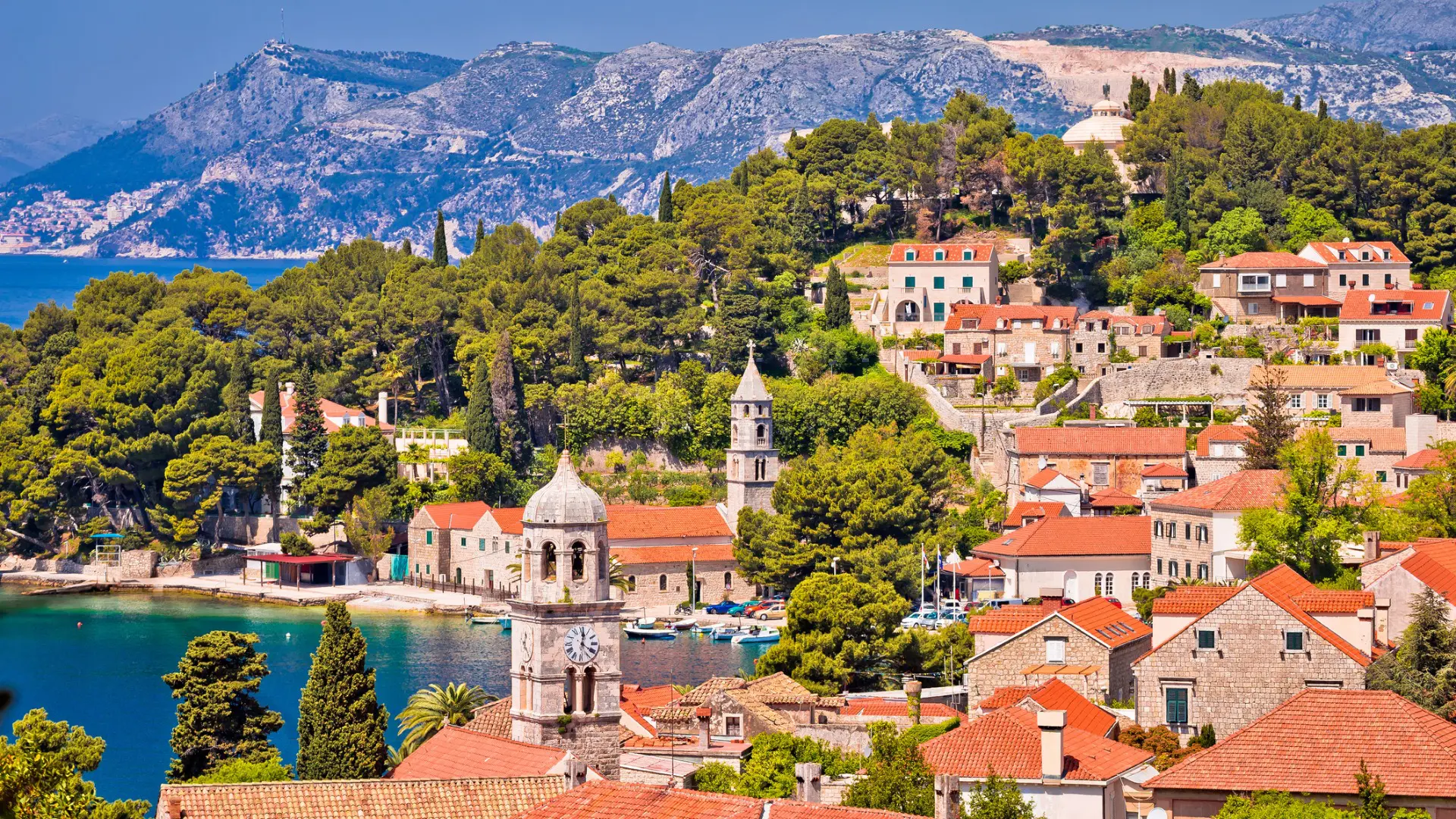
Croatia in 3 Years, Part 2: Northern Croatia
Zagreb, Croatia’s Vibrant Capital
We switch gears for the second year. Our Year 3 itinerary might feel a little too much of a direct continuation of the first, so we’re going to show you some different aspects of what might seem at first glance like quite a small country. To put it in perspective, Croatia’s just a touch smaller than West Virginia in area, and Oklahoma in population. And yet the north of the country is dramatically different from the south in terms of landscape, cuisine, and people.
Start your trip in Zagreb, the country’s political, economic, and cultural capital. Central European café culture, a la Vienna, meets Mediterranean chill. Some of the country’s best food is to be had in Zagreb, and it’s a good chance to try a very different cuisine from your trip last year.
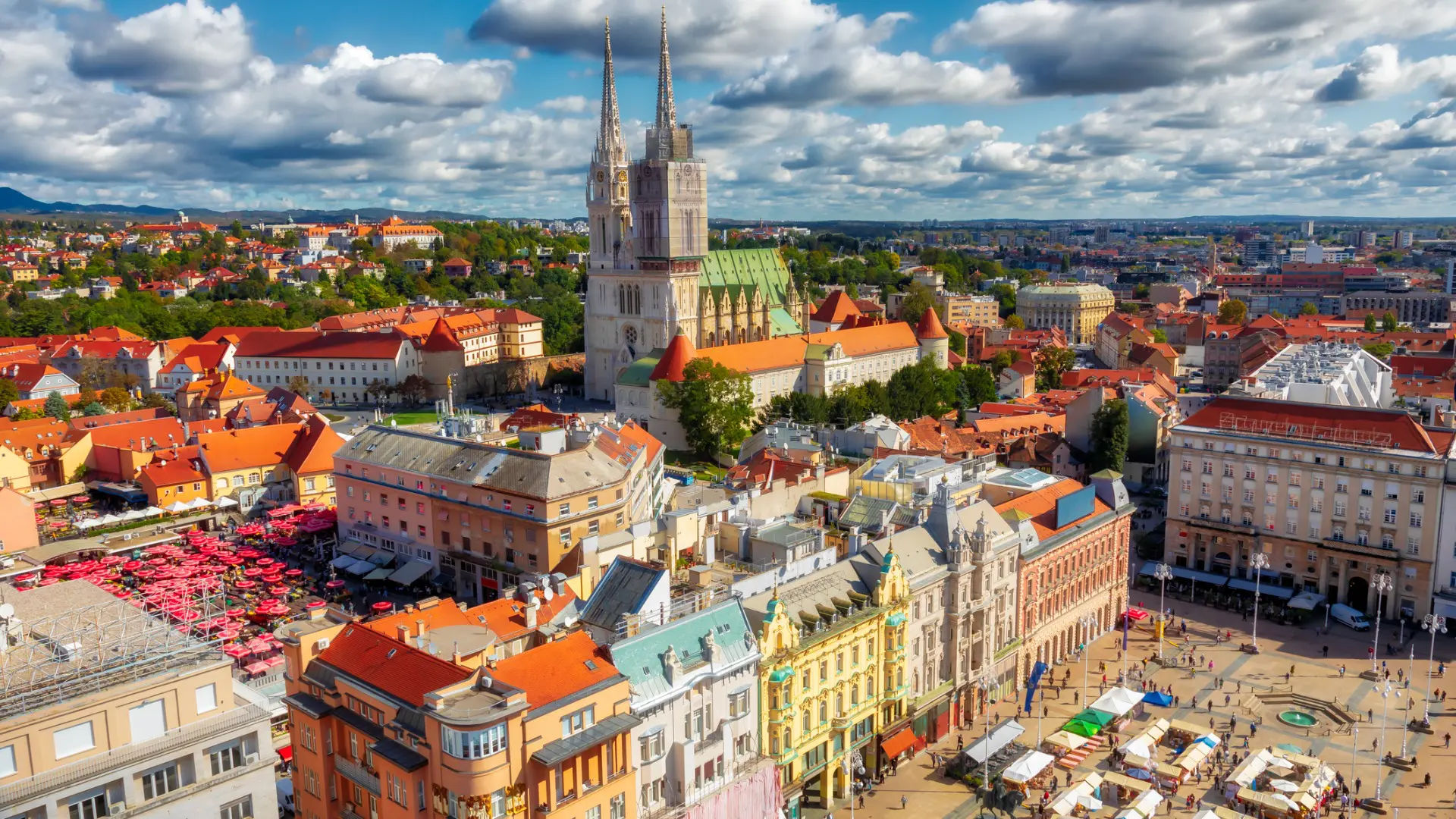
Rovinj, The Jewel of The Istrian Peninsula
Next up is Rovinj, a coastal beauty in Istria, the so-called Croatia’s Tuscany. As well as being drop-dead gorgeous in its own right, it’s also a superb base for day-tripping in the truffle-rich forested areas of inland Istria around Motovun and Groznjan, or to Pula, with its still-in-use Ancient Roman amphitheater that’s on the UNESCO World Heritage List.
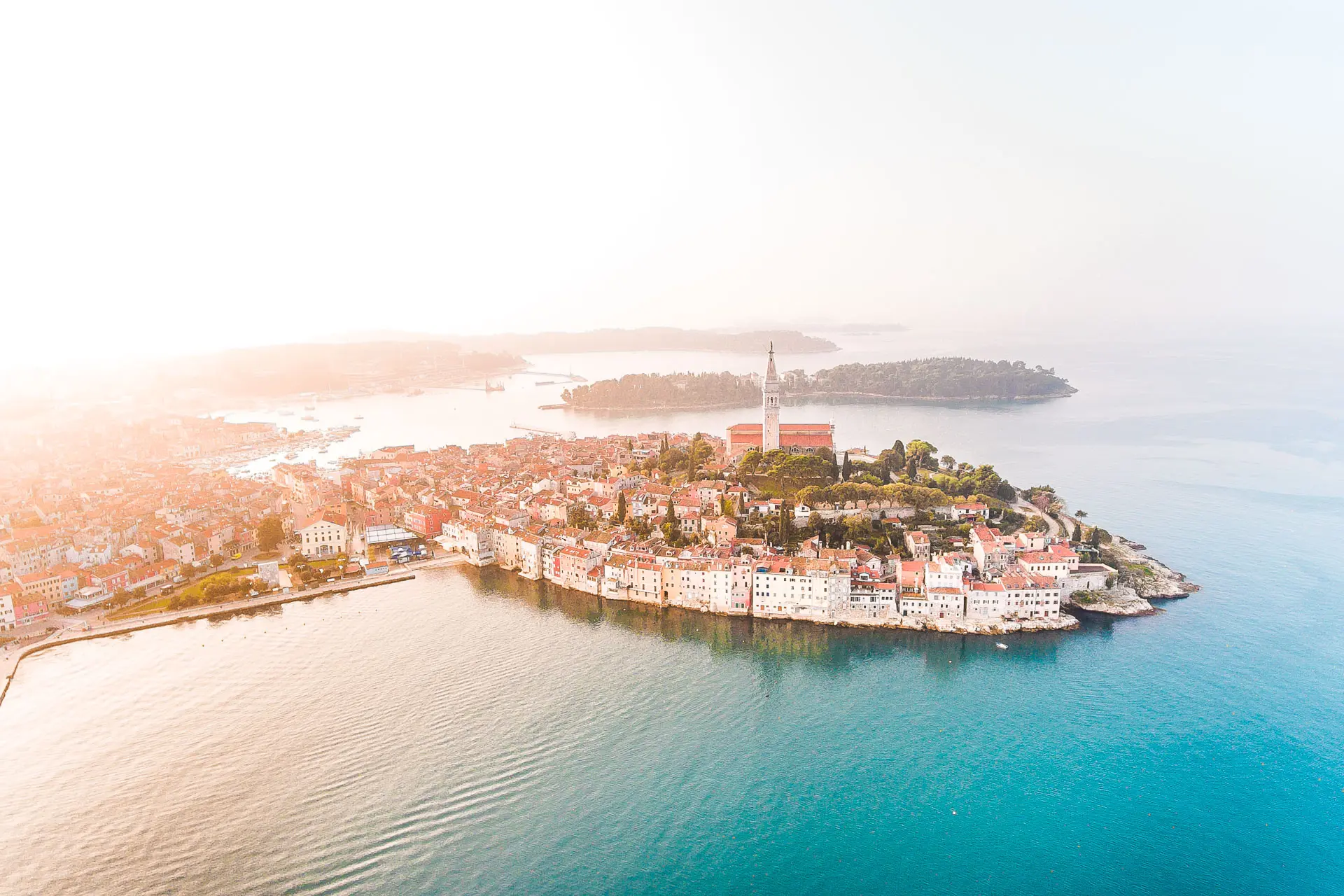
Zadar, Croatia’s Underrated Gem
The landscape changes once more as you head south and inland to the Plitvice Lakes National Park. While technically possible to squeeze this into a stop on a long drive to your final destination, Zadar, the great thing about staying for two nights is that you get to enter the park as soon as it opens in the morning, whereas the plentiful day-trippers from Zagreb, Zadar, and Split don’t arrive until around 10:30 AM. Plitvice is another of Croatia’s UNESCO sites and is a riot of vivid turquoise lakes, impressive waterfalls, and deep green forests. Because you don’t leave till the next morning, you can take your time enjoying the park.
The final stop on this itinerary is Zadar. Once an ancient Roman city, this old town located on a thin peninsula has a fun energy thanks to its large – by Croatian standards – student population. With one full day here, you can either head to another of Croatia’s national parks, Krka, for some more hiking, or opt for a delightful boat trip around the Kornati Islands close by. Zadar’s international airport is well connected with major European hubs for your onward flight home.
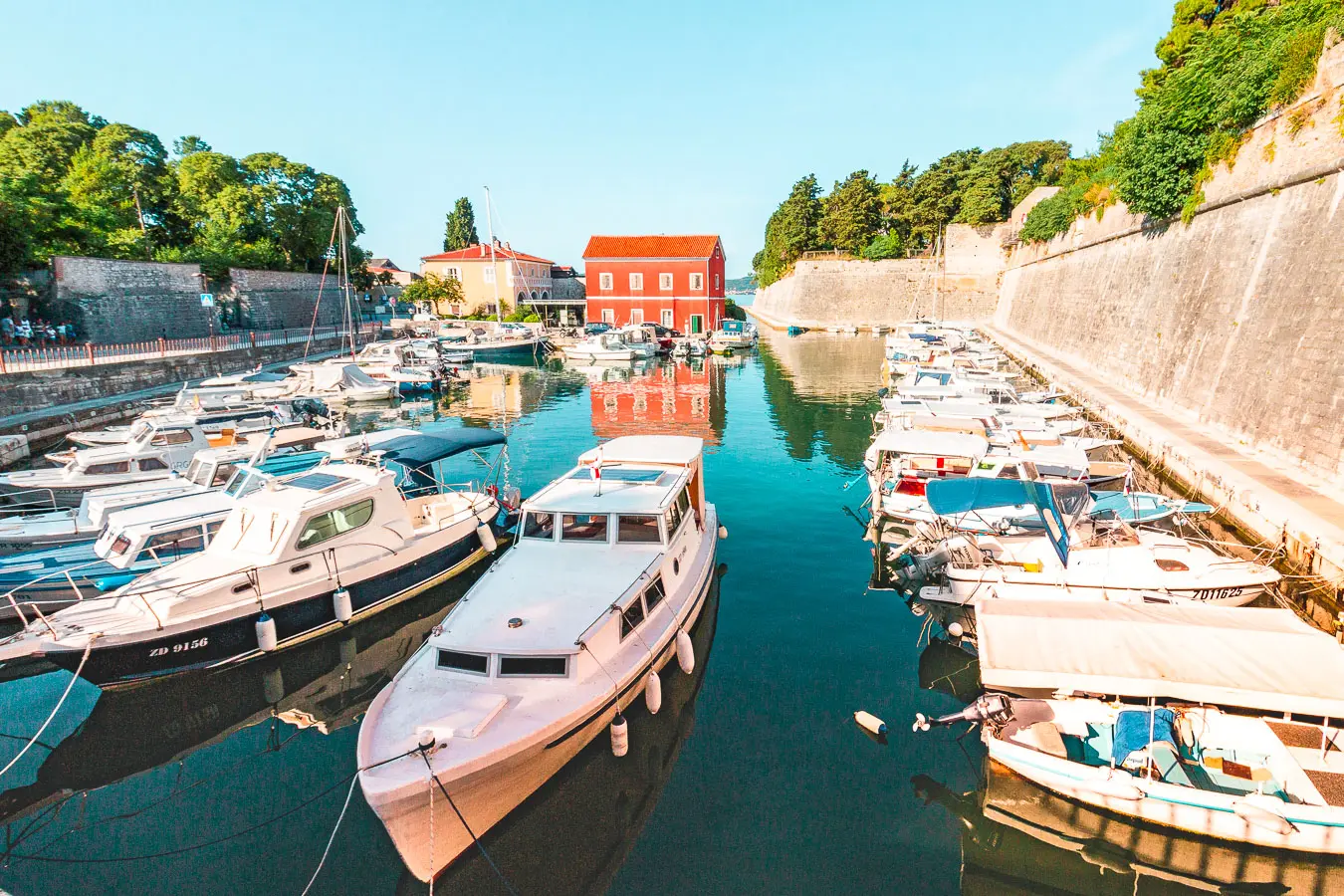
Croatia in 3 Years, Part 3: Central Dalmatia
Brač, Croatia’s Scenic Haven
Picking up almost where we left off, this itinerary is a loop from Split, Croatia’s largest coastal city. You’ll get a glimpse of Split, returning to it at the end of your trip, as you go straight from the airport to the ferry port. This Croatia itinerary is all about the islands. The first of which is Brač.
Brač offers a laid-back re-introduction to Croatian island life. Less glitzy than Hvar, it is nonetheless rich in beaches, particularly the most famous beach in the country, Zlatni Rat, or Golden Horn in English. The pride of the island is its stone. The distinctive white Brač stone is still quarried and was used in the construction of the White House.
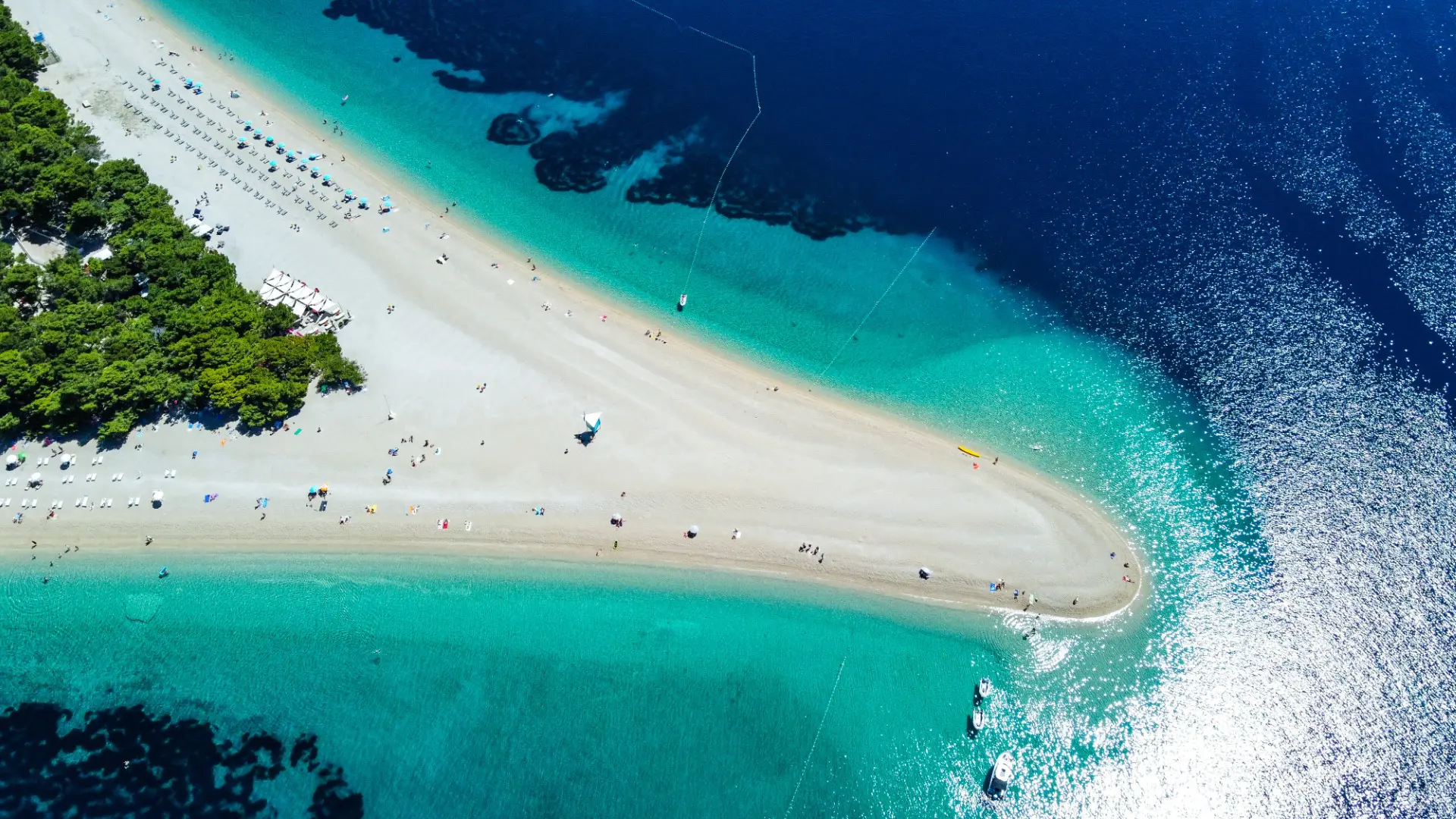
Hvar, Europe’s Sunniest Island
From Brač, a short ferry ride will take you to Hvar. Easily Croatia’s most famous island, Hvar has a party reputation, but peace and quiet are easy to come by. A guided hike or an island tour in a 4×4 is a great way to get a feel of how locals live. Wine lovers will enjoy the island’s Plavac Mali, a relative of Californian Zinfandel. No trip to Hvar is complete without a cruise around the Pakleni archipelago. Your skipper knows all the best bays and a fabulous place for lunch.
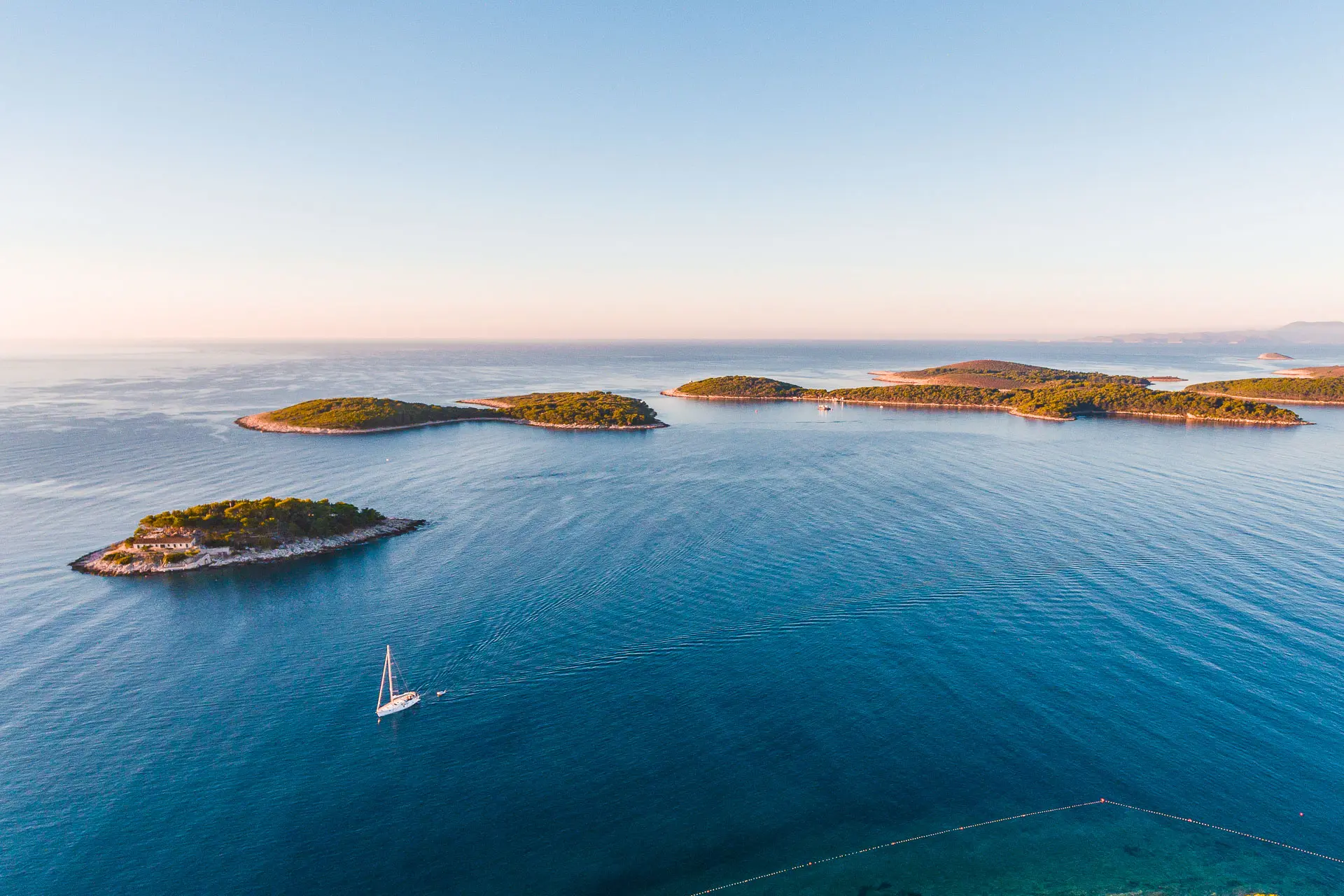
Vis, Croatia’s Gorgeous Hidden Treasure
When staying in Hvar, many people take a whole day boat trip to see the Vis Blue Cave. What they’re missing by doing this is exploring the island of Vis itself. Vis is special and that’s why we’ve chosen to allocate the most nights to it. Vis has a unique history. It’s been of military importance for centuries – the British built a fort here – and it even has ancient Roman ruins. During the Yugoslavia years, it was a fortress island. Nowadays, you can explore the gun placements and even the tunnel that a submarine could slip into. A driving tour of the island with a stop at a family-owned winery will take you to all these plus Komiza, a fishing village on the other side of the island.
Besides the military history, there’s the obligatory Blue Cave trip. However, you get to combine that with the Green Cave and a beach and swim stop, circumnavigating the island, rather than the hurried approach of visiting the Blue Cave from Hvar.
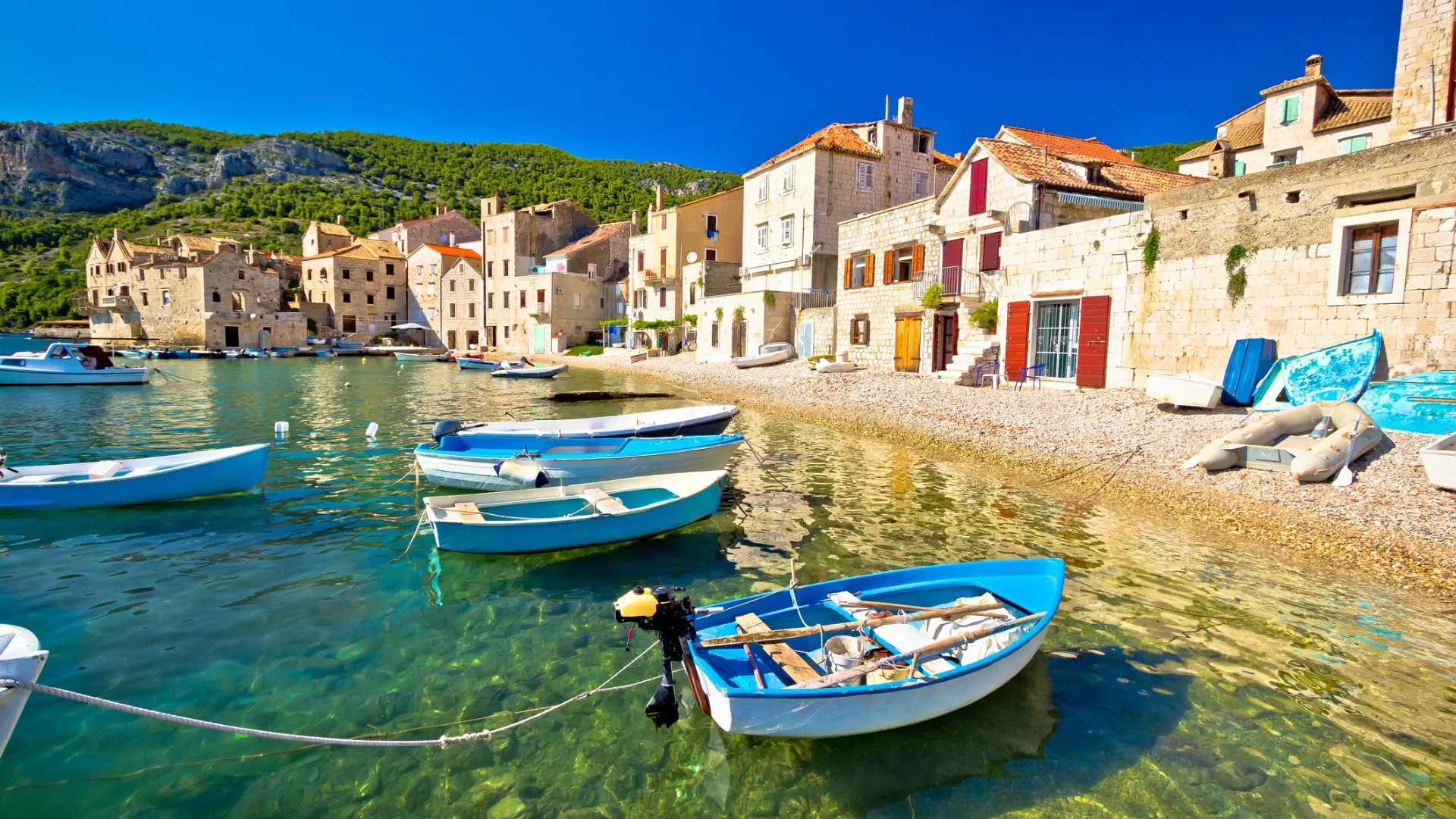
Split, Croatia’s Summer Capital
Your three years of Croatian travels come to an end in Split. Stay within the walls of the Old Town and choose a hotel built within the ruins of a retired Roman emperor’s palace. Soak up the rich history that is Croatia, from antiquity up to the folk art and costumes in the finest ethnographic museum in the country. Stroll along the Riva promenade, and take your last glances at the perfection of the Adriatic. For now at least.
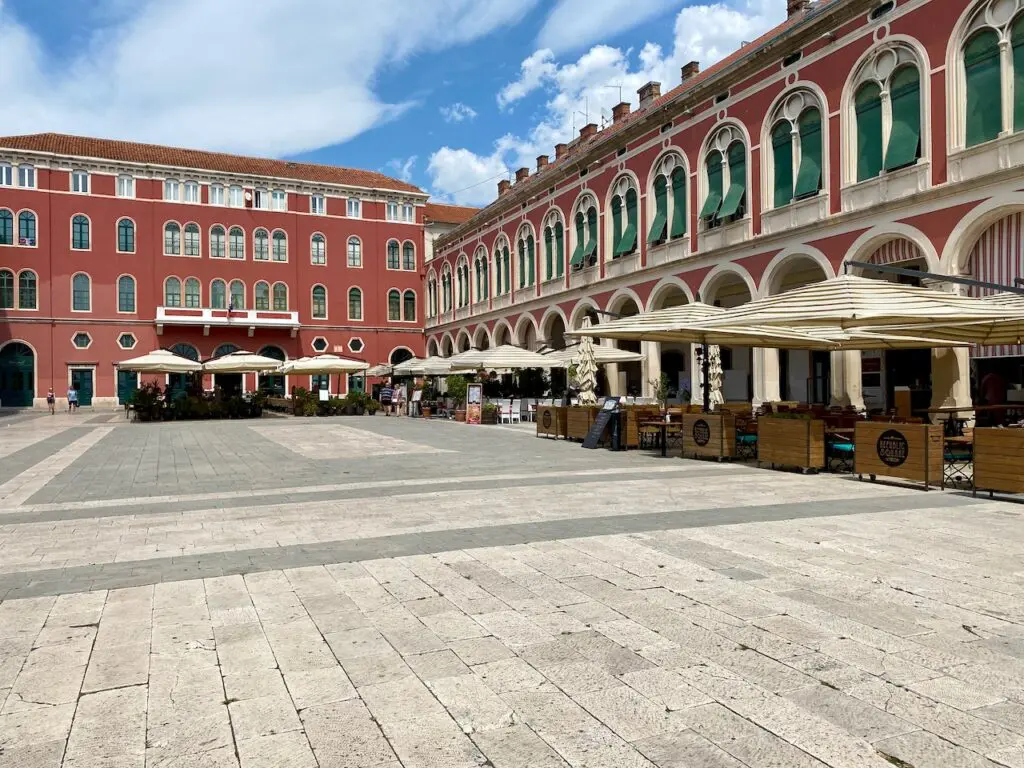
Quick Links to all Three Itineraries
* Starting price is per person, in US Dollars, based on double occupancy in 3 star accommodation, in the most affordable month an itinerary is offered. Airfare to Europe is not included.
Click on your choice of itinerary, select the number of travelers in your party, month of travel, and desired star level of accommodation to get an approximate price. Submit the enquiry form with any additional details and we can start planning your customized trip.
Dovidenja – Till We Meet Again
Now you have a solid top-to-bottom knowledge of Croatia, you can come back and fill in some of the other gaps, or see some of your favorite places again. I know Kate and I will as there’s always something new to fascinate us in Croatia. And, then, there are all those memories that will never stop bringing us back to the Land of a Thousand Islands for more.

Charlie is head of marketing at JayWay Travel. A long-term Prague resident, his interests are cooking, eating out, cycling, skiing and of course, travel.



I am interested in Croatia! What part of Europe is this? Approx cost for 2 from Houston.
Patty
Hi Patty, Croatia is in southern Europe, east of Italy, across the Adriatic Sea. You can get an idea of cost (without air, as we don’t do air) by checking out any of our itineraries on our Croatia page.